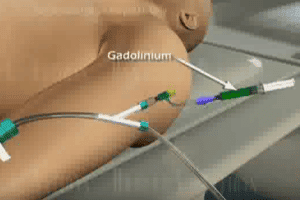
Definity and Optison Side Effects Injury Lawsuits. In October 2007, the makers of Definity and Optison, contrast agents used in ultrasounds of the heart, agreed to include a new black box warning on their package inserts after the Food and Drug Administration (FDA) received hundreds of reports of serious cardiac reactions and deaths associated with […]

Definity and Optison Side Effects Injury Lawsuits. In October 2007, the makers of Definity and Optison, contrast agents used in ultrasounds of the heart, agreed to include a new black box warning on their package inserts after the Food and Drug Administration (FDA) received hundreds of reports of serious cardiac reactions and deaths associated with the administration of these drugs.
Definity, marketed by Bristol Myers Squibb, and Optison, distributed by General Electric, are known as micro-bubble contrast agents. Definity and Optison contrast agents are used in ultrasounds of the heart to enhance images during a procedure called echocardiography. During an echocardiography, the contrast agents are injected into a patient’s veins. The drugs consist of microscopic gas-filled spheres that sharpen the resulting ultrasound picture. The use of Definity or Optison contrast agents allow doctors to better diagnose heart defects and malfunctions.
According to the FDA, there have been more than 200 reports of serious cardiac reactions involving the use of Definity and Optison. In October 2007, the FDA said that it knew of at least 11 deaths associated with the administration of either Definity or Optison. Four of those fatalities occurred either during infusion or within 30 minutes following the administration of the contrast agent. The FDA said that most of the serious but non-fatal reactions also occurred in the same time frame.
As a result of these reports, the FDA requested that the labeling on Definity and Optison be modified to include a black box warning about the cardiac problems associated with these agents. A black box warning is the FDA’s strictest type of warning. The Definity and Optison package inserts now warn that patients could experience cardiac events during, and within 30 minutes of infusion. The FDA also warned that these contrast agents should not be administered to patients with: right-to-left, bi-directional, or transient right-to-left cardiac shunts; clinically unstable or recent worsening congestive heart failure; acute myocardial infarction; serious ventricular arrhythmias or at high risk for arrhythmias due to QT prolongation; respiratory failure; and severe emphysema, pulmonary emboli or other conditions that compromise pulmonary arterial vasculature.
The new black box also warned physicians to monitor all patients receiving micro-bubble contrast agents for serious cardiopulmonary reactions during the infusion and for 30 minutes following completion of administration. Healthcare providers were also advised to keep resuscitation equipment be on hand for half an hour after injecting the drug.
The personal injury attorneys at Parker Waichman LLP offer free, no-obligation case evaluations. For more information, fill out our online contact form or call 1-800-YOURLAWYER (1-800-968-7529).


